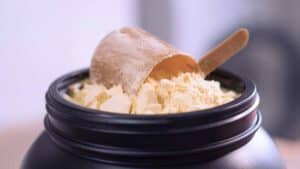Introduction
Fitness enthusiasts and health-conscious people are always looking for ways to improve their training and achieve their goals. One such method is the use of protein powders. However, with the plethora of products on the market today, it can be difficult to know which protein powders are the best and which will best meet your needs. This guide will walk you through the various options and highlight some of the best protein powders on the market.
Protein powders are popular in the world of fitness and health not only for their convenience, but also for their ability to support muscle growth, promote weight loss and improve overall health. They are an easy and quick way to increase your daily protein intake, which is especially important for people who exercise regularly. We will dissect different types of protein powders and discuss their advantages and disadvantages.
It is important to understand that not all protein powders are created equal. Some are designed for specific purposes, such as muscle building, while others are more focused on general health and wellness. By understanding the differences between these products, you can make an informed choice that fits your individual needs and goals.
In this article, we will also debunk some of the myths and misconceptions surrounding protein powders. While they can be a valuable addition to a healthy diet and exercise regime, they are not the panacea some may think. It is important to have a realistic picture of what protein powders can do and what they cannot do.
What are protein powders?
Protein powders are supplements designed to provide your body with a concentrated source of protein. They are usually made from animal or plant sources and are processed into a powder form that can be easily mixed with water, milk or other liquids.
The main purpose of protein powders is to increase protein intake. Proteins are crucial for a wide range of body functions, including building and repairing muscle tissue, supporting the immune system and promoting healthy skin, hair and nails. For people who exercise regularly, it is particularly important to get enough protein to support muscle recovery and growth.
Protein powders come in many different forms, including whey, casein and plant-based proteins. Each type has its own unique features and benefits, so it is important to choose the product that best suits your needs and goals.
It is also important to note that while protein powders are a convenient and effective way to increase your protein intake, they are not a substitute for a balanced and nutritious diet. It is always best to aim to get most of your nutrients from whole foods, and use protein powders as a supplement where needed.










